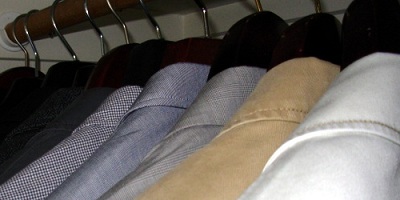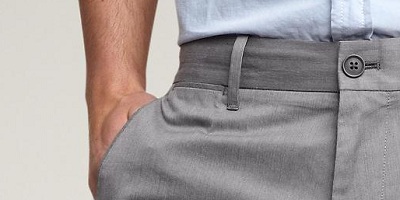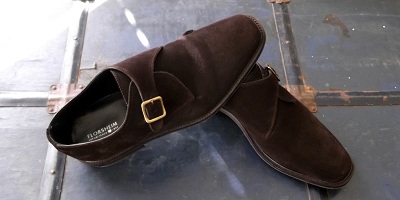From the Mailbag: What is business casual anyway? And can it look good?
I’m a recent college graduate who is lucky enough to have landed a job working for a large corporation. Our dress code here is business casual. Could you please define exactly what that is? Some people are dressed to the 9’s in their suit and tie every day, while others show up in denim and flannel.
– Kirk
.
Here’s the dirty definition of the minimum standards for men’s business casual attire:
- Clean, pressed, cotton chinos or wool trousers. Jeans aren’t acceptable for most businesses.
- A collared button up style of shirt that’s tucked into those pants.
- Shoes that aren’t sneakers, and at least look like leather.
Business casual is a botched attempt by corporate America to make their employees feel more comfortable. It’s as effective as a company-organized (and required) “social” function. You’re still being required to do something, and the complete lack of authenticity makes the entire deal seem phoney and counter-productive. What most guys end up wearing to a business-casual workplace is neither comfortable nor something they’d choose to wear when relaxing. Awesome.
But Kirk and the rest of the business casual world has some leeway. Here’s a three point plan on how to upgrade the current state of the unfortunate, standard business-casual uniform:
.
#1. Put on a well-tailored blazer or sport coat.

Tweeds and corduroy in the winter, linen and lighter stuff in the summer, crisp cotton all year round. But why a jacket? Humans are animals. The workplace, in a way, is a type of pack. And a jacket makes you look stronger and smarter. It hides flaws and gives you clean lines. And it’s awfully tough for the top boss-dog to give you a hard time if he’s stylistically limping around on the ice-floe looking like hell, and you look like the healthiest, meanest of the pack.
#2. Change the color of your pants. And kill the pleats.

Not everyone has to look like they work at Best Buy. Try grey pants. Deeper hues of beige. Throw some chalk stripe wool slacks in there. Green plaid. Whatever. Flat fronts are a must if you wear your pants at your hips. Pleats are there to taper the fabric in an organized way for men who wear their pants on their true waist. If you’re wearing pleats on your hips, you end up with a lumpy fabric spare tire. Pleats on pants worn on the hips are pointless. Like trailer hitch on a Geo Metro pointless.
#3. Wear well shaped shoes. And try something other than a standard lace ups.

A lopped off square toed shoe isn’t the most elegant thing in the world. It was trendy for awhile there, but so were pogs. You want something more aerodynamic than a Mack truck. Feel free to mix up your standard leather lace-ups with suede, clean loafers, and even wingtip boots.
.
Some final quick pointers:
- Make sure it all fits – 90% of the problem is that guys wear stuff that’s too big.
- Don’t show a bright white undershirt – Not the classiest thing.
- A sport coat/blazer might allow you to get away with jeans – Check first. Keep the denim solid & dark.
- Wear a relaxed summer suit once it warms up – Blow the receptionist’s friggin’ mind.
Work in a business casual environment? How did you adapt? Leave it all in the comments section below.
Top photo credit: cote